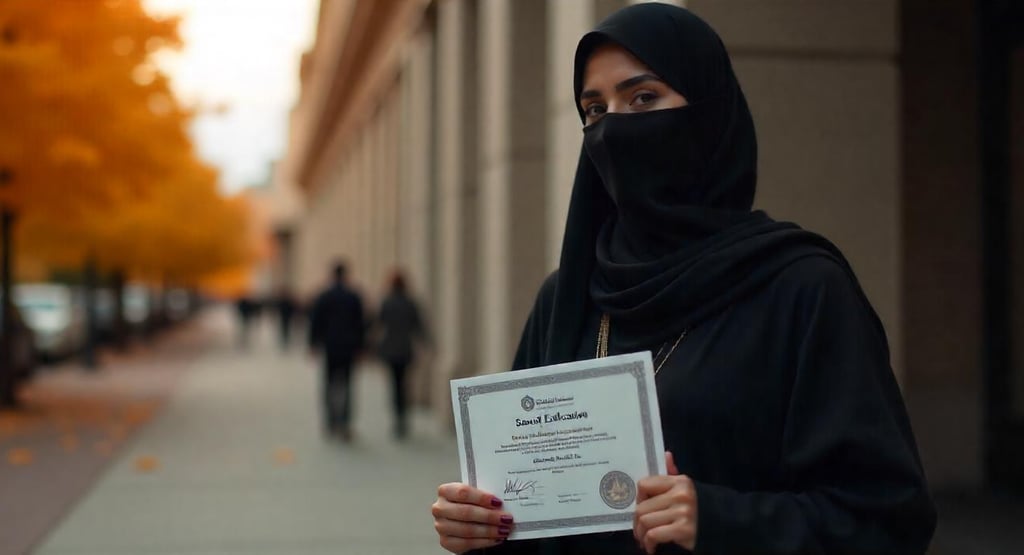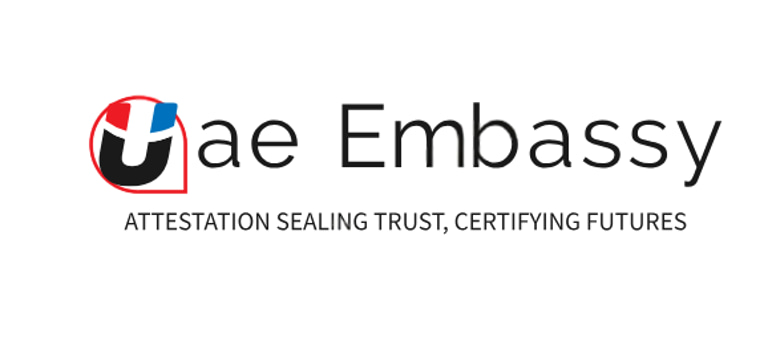Saudi Arabia Embassy Attestation: Easy Guide
Discover the fast and easy guide to MOFA legalization at the Saudi Arabia embassy. Learn the steps for attestation and ensure your documents are recognized in Saudi Arabia.
7/14/20254 min read


Understanding Embassy Attestation and MOFA Legalization
Embassy attestation is a crucial step in the process of document verification, particularly when dealing with international affairs. Essentially, it involves the verification of specific documents by an embassy, confirming that the documents are authentic and issued in the respective country. This procedure is especially significant for individuals and entities handling matters related to work, education, or official business in Saudi Arabia, as it underscores the credibility of presented documents.
The Ministry of Foreign Affairs (MOFA) plays a pivotal role in the legalization process, as it is responsible for ensuring that documents submitted to it for attestation are genuine and comply with the regulations of Saudi Arabia. When a document is attested by both the embassy and MOFA, it enhances the legitimacy of the document, making it acceptable for various uses within the Kingdom. This process is vital for securing employment, enrolling in educational institutions, or facilitating business transactions.
Common types of documents that require embassy attestation include educational certificates, marriage certificates, and commercial documents. Each of these holds significant importance in the respective fields they pertain to. For instance, educational certificates are needed for university admissions and job applications, while marriage certificates may be required for family visa applications. Having these documents legalized prior to their use in Saudi Arabia can save time and ensure compliance with local laws and regulations.
Furthermore, the benefits of legalizing documents extend beyond mere acceptance; it offers a layer of protection and recognition in the Kingdom. Attestation serves as proof of the documents' authenticity, deterring potential disputes regarding their validity. Individuals and businesses alike can enjoy a smoother integration process into the Saudi system, fostering trust and facilitating necessary approvals or contracts.
Step-by-Step Process for Document Attestation
The process of document attestation by the Saudi Embassy and the Ministry of Foreign Affairs (MOFA) requires careful attention to detail and adherence to specific protocols. Commencing with document preparation, gather all necessary documents needed for attestation, including your original certificates, copies, and any supporting documents such as ID proofs. It is essential to ensure that all documents are valid and free of discrepancies.
Once the documents are assembled, the next step involves filling out the required application forms. These forms can typically be found on the official Saudi Embassy website or obtained directly from the embassy. Accuracy is key; therefore, ensure that all information is correctly entered, matching any details on your documents. After completing the forms, review them thoroughly to avoid potential delays.
Following this, it is crucial to pay the requisite fees for the attestation process. The fee structure may vary based on the type of document and the urgency of processing. Payments can usually be made via bank transfer or cash at the embassy. Retain the payment receipt, as it may be needed to verify your transaction.
Once you have completed the payment, proceed to submit the documents along with the application forms and payment proof at the Saudi Embassy. Ensure that you keep copies of everything submitted for your records. It is advisable to schedule an appointment, if required, to avoid long waiting times. Processing times may vary, so it is prudent to inquire about the estimated timelines during submission. Generally, simple documents can take a few days, while more complex situations may require weeks.
Additionally, be aware of common pitfalls such as failing to provide complete documentation or incorrect information on forms, which can lead to delays or rejections. To facilitate a smooth process, stay organized, remain patient, and regularly follow up on your application status if needed.
Important Requirements and Documentation Needed
For a successful attestation and Ministry of Foreign Affairs (MOFA) legalization in Saudi Arabia, it is crucial to understand the various requirements and documentation needed. The types of documents eligible for attestation typically include educational certificates, marriage certificates, and business registration documents. Each category of applicant will have specific needs, particularly students, workers, and businesses, which will be elaborated upon below.
Students seeking attestation for their educational certificates must provide original documents such as diplomas, transcripts, and, if applicable, a degree equivalence certificate. Additionally, a copy of the passport and a recent photograph may be required. For those who have completed their education abroad, it is essential to also include a certificate of good conduct or police clearance. This additional documentation ensures that all legal formalities are adequately met.
For employees or workers, especially those applying for work permits, the necessary documents often include an employment letter, a copy of the contract, and the educational qualifications relevant to the job position. Furthermore, a valid passport copy along with a work visa may also be required to facilitate the attestation process. Employers may need to provide additional supporting materials such as a commercial registration or a certificate of good standing to establish the legitimacy of their business.
Business entities aiming for MOFA legalization must prepare a comprehensive set of documents, including the commercial registration certificate, articles of association, and tax registration documents. Moreover, it is advisable for businesses to submit any legal agreements or contracts related to their operations in Saudi Arabia. By ensuring that all requisite documents are organized and submitted, applicants can streamline their attestation process, encouraging a more efficient approval timeline.
FAQs and Common Challenges in the Attestation Process
The embassy attestation process and MOFA legalization are essential steps for individuals needing to authenticate their documents for use in Saudi Arabia. As such, understanding this process can help mitigate potential issues. One of the commonly asked questions pertains to the timeframe for attestation. Generally, the process may take anywhere from a few days to several weeks, depending on the nature of the documents and the efficiency of the embassy. It is advisable to plan well in advance to avoid last-minute rushes that could lead to delays.
Another frequent concern regards the types of documents that require attestation. Most legal, educational, and personal documents necessitate this verification, but specific requirements can vary based on the document type. Individuals should ensure they have all necessary paperwork in order before initiating the attestation to avoid unnecessary complications.
Delays in the attestation process can occur due to incorrect or incomplete documentation. To minimize this risk, it is vital to double-check all documents for accuracy and completeness. A checklist can be particularly useful in ensuring that no crucial requirements are overlooked. For those new to the process, seeking assistance from a professional attestation services provider can streamline the experience.
Rejection of documents can be another significant hurdle. The primary reasons for this include non-compliance with the embassy's criteria or the absence of required notarization. In such cases, contacting the embassy for specific feedback on the rejection will guide individuals in correcting the issues before re-submission.
In summary, thorough preparation, understanding the required documentation, and seeking professional guidance when necessary can significantly enhance the likelihood of successful embassy attestation and MOFA legalization, making the entire process smoother and more efficient.
